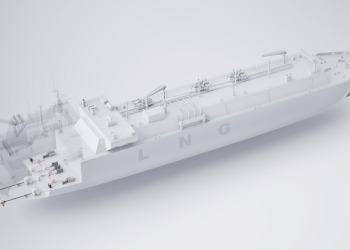Reduced fuel consumption and greenhouse gas emissions
 An ABB turbocharging solution enables gas and diesel engines to go from idling to full load in half the time it usually takes, thereby significantly reducing fuel consumption and greenhouse gas emissions.
An ABB turbocharging solution enables gas and diesel engines to go from idling to full load in half the time it usually takes, thereby significantly reducing fuel consumption and greenhouse gas emissions.
Fuel accounts for more than two-thirds of the operating costs of gas and diesel engines. This, and the increasingly stringent emissions regulations for the maritime, power generation, and other industries make engine efficiency the number one priority for engine builders and engine users alike.
One of the tools that engine builders are using to reduce fuel consumption and greenhouse gas emissions is Valve Control Management (VCM?), ABB’s variable valve train system.
VCM can typically increase gas engine efficiency by more than one percentage point, and that means fuel savings of more than two percent. For a 10,000 kilowatt gas engine, this translates into about $200,000 in fuel savings annually. For a power plant with ten such engines or more, the savings are significant.
Optimized at all times
VCM is an intelligent valve train system that works adaptively to provide an engine with the optimal amount of air for different speeds, loads and operating conditions. This enables, among other things, the turbocharger to take the engine from idling to full load in at least half the time it usually takes.
As a result, a turbocharged engine equipped with VCM operates with optimal air supply and maximum efficiency at all times. It reduces engine fuel consumption, greenhouse gas emissions and the engine’s thermal load. VCM can also be combined with ABB’s two-stage turbocharging solution, Power2, to enable customers to further reduce emissions and save even more on fuel.
VCM is particularly effective for high-performance engines in which large operating ranges or rapid load responses are required such as tugboats, icebreakers, pump drives, compressor drives and power generators.
Source: ABB





























































